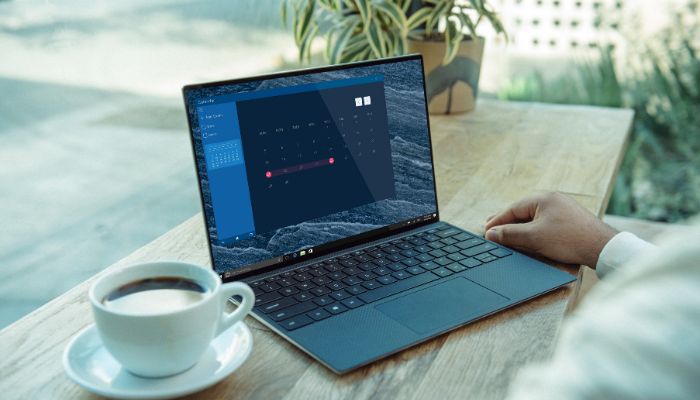
Ever wondered will pending charges show up on a background check? Your curiosity isn’t in vain. It’s crucial to know the impact these charges can have on your life.
Yes, in many cases, pending charges can show up on a background check, but the specifics can vary based on jurisdiction, the type of background check, and the nature of the charge.
You’re about to delve into a comprehensive analysis, unraveling how different states handle pending charges and their effects on job applications.
Let’s demystify the mystery of will pending charges show up on a background check, arming you with knowledge for future reference.
Table of contents
What is a Pending Charge?
A pending charge refers to a situation where an individual has been arrested for an alleged crime, but the case has not yet been fully addressed by the legal system. This means that the individual in question has not been convicted, but the charge remains unresolved.
The process begins when the police arrest someone and then refer the case to the prosecutor. The prosecutor, often in county courthouses, then reviews the case to determine the next steps. This is known as the case review by the prosecutor.
Reasons Why a Charge Might Be Pending:
- Sufficiency of evidence: Sometimes, there might not be adequate evidence to either dismiss the charge or move forward with a criminal trial. The prosecutor might need more time to gather evidence or might be waiting for results from forensic tests.
- Questions about the perpetrator: In some cases, there might be doubts or questions about whether the arrested person was indeed the perpetrator of the crime. This requires further investigation.
- Potential police errors: Errors made by the police during the arrest, such as not reading the Miranda rights or not having a valid reason for a stop, can lead to complications in the case.
- Charging errors by the police: Sometimes, the police might charge an individual with a crime that doesn’t align with the evidence. The prosecutor will review such cases and might decide to change the charge valid.
After reviewing the case, the prosecutor has several options. They can decide to dismiss the charge if there’s not enough evidence or if they believe the charge crops up from an error. They can also add additional charges if they believe the individual committed more crimes. In some cases, they might reduce the charge, for instance, from a felony to a misdemeanor. Lastly, they can decide to proceed with the charge as recommended by the police.
It’s essential to understand that a pending charge is not definitive proof of guilt. It merely indicates that the legal process is still ongoing. Those with pending charges should consult with criminal defense lawyers or a criminal attorney to understand their rights and the potential consequences for individuals.
The Impact of Pending Charges

Facing pending charges, you’re likely to encounter significant consequences, especially since these charges can appear in your background checks and possibly influence your chances of securing your dream job or ideal house. A background check report typically includes details about any criminal charges, past or pending, that could affect your suitability for a role or situation. It’s important that an accurate background check shows all relevant information, including any pending charges, to provide a clear understanding of one’s criminal history.
Pre-employment background checks are frequently conducted by prospective employers, and these criminal history checks can reveal your pending charges. This may lead employers to question your integrity, reliability, and overall character, potentially reducing your chances of landing the role.
Moreover, pending criminal charges can also influence your ability to find housing. Many property managers and landlords perform background checks before offering a lease. If they discover pending charges, they might perceive you as a potential risk and decide not to rent to you.
Do Background Checks Show Pending Charges?

The Role of Pending Charges in Background Checks When employers or organizations conduct a background check, they aim to gather comprehensive information about an individual’s past, including their criminal history records. One common component that often raises questions is the appearance of pending charges. In general, pending charges can and often do appear on background checks. These are charges for which a person has been arrested, but the legal proceedings are still ongoing, meaning no final verdict has been reached.
Factors Influencing the Appearance of Pending Charges
Type of Search Conducted:
The kind of background check conducted plays a significant role in determining whether a pending charge will show up. There are various types of background checks available:
- County-Level Search: This type of search focuses on records from specific county courthouses. If the pending charge is from a different county, it might not appear.
- Statewide Search: A more comprehensive search that covers records from an entire state. It’s more likely to show pending charges, but there might still be gaps if the charge is from another state.
- National Background Checks: These are the most comprehensive checks, pulling records from multiple states and even federal sources. They have the highest likelihood of showing pending charges.
- Fingerprint Background Checks: This type of check is often used for more thorough screenings, particularly in jobs requiring high security or trust. Fingerprint background checks show up a more detailed record, including any arrests or pending charges, regardless of the location.
Level of Severity of the Pending Charge
The severity of the charge can also influence its appearance on a background report. For instance, felony charges are more likely to appear compared to minor misdemeanor charges. Serious offenses, especially extreme crimes like murder or sexual assault, are almost always highlighted due to their significant implications.
Geographic Considerations
The location where the alleged offense took place can also determine if a pending charge will appear on a background check. As mentioned, a county check might not reveal charges from another county. Similarly, charges from another state might not appear on a state-specific search. Furthermore, some states have specific laws and regulations about what can and cannot be shown on a background check. For instance, North Carolina might have different rules compared to California.
Understanding whether a pending charge will appear on a background check involves considering multiple factors, from the type of search conducted to the geographic location of the offense. Employers and background check providers must be aware of these nuances to make informed decisions during the hiring process. It’s also crucial for job seekers to be aware of what might appear on their background checks and to consult with legal counsel if they have concerns about the information presented.
How Different States Handle Pending Charges?

You’ll find that state laws vary significantly when it comes to handling pending charges in a background check. This variance in background check laws is mostly due to the difference in how each state conducts its state-level check.
- Some states, for instance, include pending charges in their criminal records. This means that during the background check process, any ongoing legal issues will be revealed. These states believe that full disclosure provides a more comprehensive picture of an individual’s character.
- Other states, on the other hand, only report convictions. In these states, pending charges aren’t shown in a background check unless they result in a conviction. This approach is based on the principle of ‘innocent until proven guilty.’
- Lastly, there are states with mixed rules. These states might show pending charges for specific types of jobs, like those involving children or vulnerable adults, but not for others.
Understanding these variations can help you better anticipate what’ll show up on your background check, especially if you have pending charges. Remember, laws change, so staying informed is crucial for accurate expectations.
Job Applications and Pending Charges
In the midst of navigating the job application process, it’s important to understand how your pending charges could potentially impact your chances of securing employment. When potential employers conduct a background check, your pending charges are likely to show up. This could be a stumbling block, as employers might view these charges as a risk factor, potentially affecting their hiring decision.
Now, it’s critical to note that not all job applications require a criminal background check. However, for those that do, having a clear understanding of what might appear on your record is imperative. Depending on the nature of the job and the charges, potential employers might take these into consideration when making a hiring decision.
Remember, employers typically value honesty. If you’re upfront about your situation, explaining the circumstances surrounding your pending charges, it could possibly sway the employer’s decision in your favor. However, keep in mind that every situation is unique and this isn’t a guarantee.
Mitigating the Effects of Pending Charges
While it’s true that pending charges can complicate your job application process, there are steps you can take to mitigate their impact. These mitigating effects can be crucial in helping you navigate the background screening process more effectively, painting you as a potential employee who’s proactive and responsible.
- Openness and Honesty: When a criminal background check reveals pending charges, honesty is the best policy. Proactively disclose the situation to the prospective employer. This shows integrity and might prevent the employer from finding it out on their own, which might cast doubts about your trustworthiness.
- Legal Consultation: Seek advice from a legal professional. They can guide you on the potential impacts of the charges and the best course of action. Legal advice can also help prepare you to answer any questions an employer might’ve about the charges.
- Character References: Providing character references who can vouch for your work ethic and character can be beneficial. These references can help to counterbalance the negative implications of the pending charges.
Conclusion
So, you’re wondering if that pesky pending charge will make an appearance on your background check? Well, buckle up, friend. In this crazy world of ours, it’s a toss-up. Some states will air your dirty laundry, others won’t.
And job applications? That’s another minefield. But don’t lose hope; there are ways to mitigate the fallout. Remember, a pending charge isn’t a conviction. So, chin up, march on, and deal with that background check with gusto!
FAQs
How much time does it take for pending charges to show up?
Once an individual is arrested, pending charges can appear on a background check almost immediately. However, the exact time can vary based on the type of search and the efficiency of county courthouses in updating their records. Typically, for a county-level search, it might take a few days to a week.
What are the penalties for improperly using criminal records?
Improper use of criminal records, especially in employment decisions, can lead to legal consequences. Employers can face legal action, fines, or be subject to employment discrimination lawsuits. It’s crucial to comply with the Fair Credit Reporting Act (FCRA) and state-specific employment laws when using criminal records in hiring.
Does an applicant’s pending charge indicate guilt?
No, a pending charge does not indicate guilt. It merely signifies that the legal process is ongoing. Until a trial verdict is reached, every individual is presumed innocent. Employers should avoid making assumptions based solely on pending charges and should consult legal counsel for guidance.